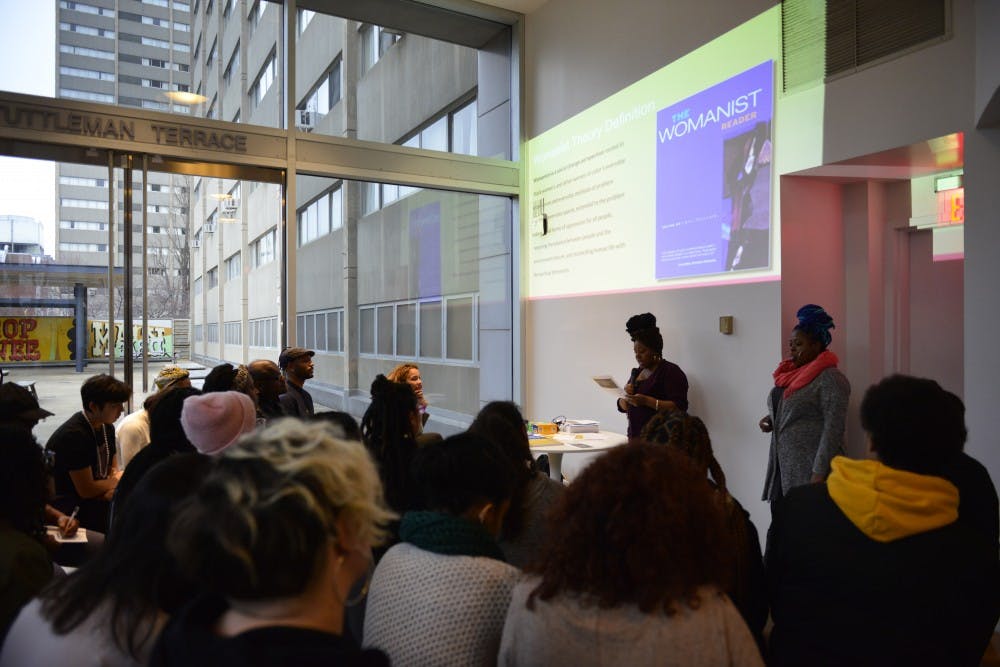Last Saturday, on February 17th, the Institute of Contemporary Art and Philadelphia Printworks, a retailer centered on DIY culture and social justice, hosted “The Audre Lorde Syllabus: A Road Map During Times of Paralysis.” The evening was marked by multiple workshops, teach–ins, and self–care to the tune of a live DJ.
The day of the event didn’t seem particularly bright. In fact, it was gloomy and the sky above was a deep dark grey. Outside, it was snowing—not the kind of snow that makes for a nice photo, but the kind that dissolved right into your coat upon encounter, leaving you wet and cold. Of all days, this was the day to celebrate Audre Lorde, a self–proclaimed black lesbian feminist. But it was this kind of day that was needed to balance the light that had so shone from Audre’s work, a light that shone from her anger and outrage at the injustices that plagued her time.
Audre Lorde was an American writer, most active in the sixties and seventies. Renowned for her poetry and prose, Lorde focused primarily on social injustices, particularly ones of gay rights, feminist movements, and the African–American civil rights movement. Her style as a poet memorialized her as a master of technique and emotion, but more than that, she was remembered for her unwavering support for the exploration of the black female identity.
This is what the event paid tribute to. As I walked into the Institute, I go upstairs to the second floor, where the open space has been filled with wooden benches angled as to converge in a line down the middle. It’s the first workshop of the day. Up ahead, “Womanism as a Vehicle to Black Liberation” is projected in yellow against the wall. Downstairs, there is a writing and poetry workshop. Clearly, everything is designed to pay homage to the literary and social renown of Audre.
I stay in the atrium on the second floor; the room quickly fills up and people begin to turn to the stairs as their seats. The workshop is essentially is a lecture on the role of womanism as it played in Audre’s life and how she used it to shape the lives of others. Facilitated by the Womanist Working Collective, a “social action and supportive collective for Black womyn (both cis and trans), femmes & Gender Variant folks,” the leaders of the group go through Audre’s legacy in establishing and shaping such an ideological force. Womanism, I learn, is not the same thing as feminism, and while the two are similar in their goals, that is gender equality, womanism concentrates on the intersectionality of feminism, namely Black women.
After this is an “embodied tenderness workshop.” The facilitators lead exercises in breathing and yoga interspersed with conversations on consent. And then a roundtable discussion to shed light on the intertwining of capitalism, colonialism, sexism, and racism as they pertain to communities of color.
The point is not just that all of these activities occurred, but that this was the doing inspired by a literary artist, Audre Lorde. Through her words along with those of many others, she was able to shed light on social justices (and injustices) that make these conversations possible today. That’s what art does.

